Group Leader
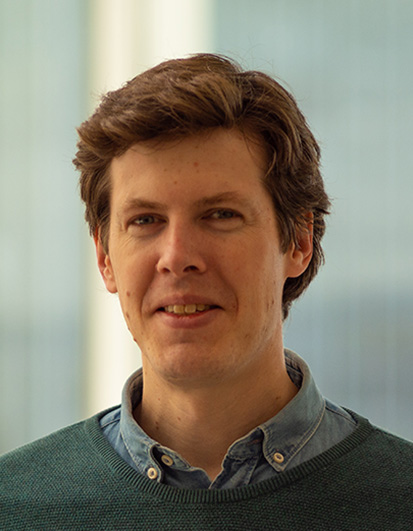 |
Dr. Sander J. Wezenberg |
| Sander studied Chemistry at the University of Nijmegen where he carried out his Master's research in the group of Prof. Roeland Nolte. He pursued his PhD studies in the field of supramolecular chemistry and catalysis with Prof. Arjan Kleij at the Institute of Chemical Research of Catalonia. During this period, he spent time as a visiting researcher in the group of Prof. Joseph Hupp at Northwestern University. After receiving his PhD degree in 2011, he joined the group of Prof. François Diederich at ETH Zurich as a postdoctoral fellow. Two years later, he moved to the University of Groningen to work with Prof. Ben Feringa, where he was appointed Assistant Professor in 2017. He established his independent research group at Leiden University in 2019, and was promoted to Associate Professor in 2022. His main research interests are in the areas of molecular switches, ion recognition and transport, and dynamic supramolecular systems. Sander is recipient of several prestigious grants, including a Starting Grant (2018) from the European Research Council (ERC), and young investigator grants (Veni-2014, Vidi-2018) from the Dutch Research Council (NWO). In 2020, he was elected as member of the Young Academy of Europe. |
Postdocs
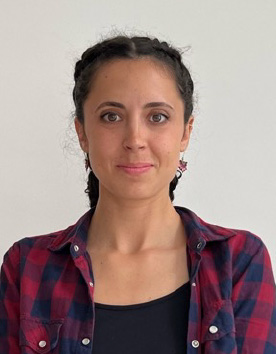 |
Dr. Julia Villalva |
| Julia obtained her BSc in Chemistry in 2015 at the Universidad Autónoma de Madrid and her MSc in Organic Chemistry at the same university in 2016. She carried out her bachelor's and master's research in Juan Carlos Carretero's group under the supervision of Nuria Rodríguez Garrido and Ramón Gómez Arrayás focusing on the study of metal-catalyzed C-H functionalization reactions. She started her PhD studies in September 2016 in Emilio M. Pérez's group (IMDEA Nanociencia), focusing mainly on the development of novel methods for the chemical modification of carbon nanotubes and 2D materials. In 2020 she was awarded her PhD in organic chemistry (summa cum laude) and started working as a scientific consultant. In 2022, Julia joined the Wezenberg group as a postdoctoral researcher to work on photoresponsive anion channels. |
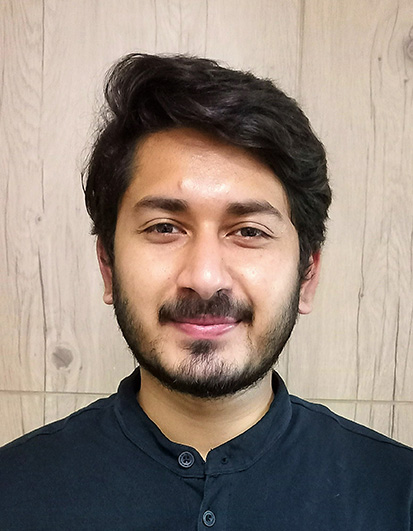 |
Dr. Abhishek Mondal |
| After obtaining his BSc (2016) in Chemistry from the University of Calcutta, West Bengal, India, Abhishek joined the Indian Institute of Science Education and Research (IISER), Pune, to pursue an integrated MS-PhD in the same year. He was awarded the prestigious Prime Minister's Research Fellowship to carry out his PhD under the supervision of Prof. Pinaki Talukdar, where he worked on developing artificial anion and water transport systems and evaluating their biological activity. In 2023, Abhishek joined the Wezenberg group as a postdoctoral researcher to work on molecular machine based artificial anion transport systems. |
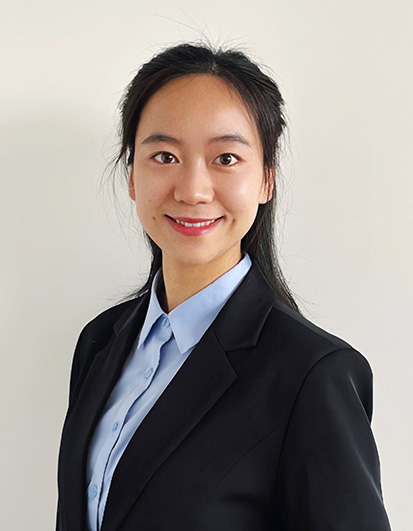 |
Dr. Xiaoyao Chen |
| Xiaoyao obtained her bachelor's degree in 2016 in Chemical Engineering at Soochow University. In 2019, she received her master's degree in Polymer Chemistry and Physics from the Shanghai Institute of Organic Chemistry, Chinese Academy of Sciences. After that, she joined the Technical University of Munich in 2019 for her PhD degree under the guidance of Prof. Job Boekhoven. Her research interest was developing a new chemically fueled reaction cycle and exploring kinetics-properties relationships. After she got her PhD degree in 2024, she joined the Wezenberg group as a postdoctoral researcher to control the activity synthetic anion transporters by modulating their membrane mobility and incorporation. |
PhD Students
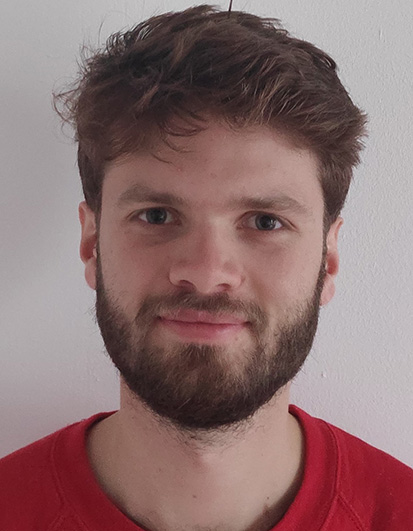 |
Nol Duindam |
| Nol was born in the Netherlands in 1997 and obtained his bachelor's (2018) and master's degrees (2021) in Chemistry at the University of Groningen. During his BSc research, he worked on the synthesis of photoresponsive bis(biurea) ligands and their application in anion-templated self-assembly under the supervision of Dr. Sander Wezenberg. For his MSc research, he joined the group of Prof. Adri Minnaard to work on the total synthesis of isotope labelled archaeal lipids. He performed a research internship with Prof. Chris Hunter at the University of Cambridge, where he studied novel signal transduction systems in synthetic vesicles. In March 2021 he joined the Wezenberg group as a PhD student to develop stimuli-responsive phospholipids for the control of liposomal membrane permeability. |
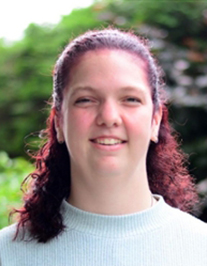 |
Sabine Langens |
| Sabine was born in Oss in 1996 and obtained her BSc degree in Molecular Life Sciences at the Radboud University in 2019 after a research project on the synthesis of a functionalized PEG-b-PDLLA polymer library in the group of Prof. Daniela Wilson. Afterwards, she continued her Master education in Chemistry at the Radboud University where she graduated in 2021. During this period, she returned to the group of Prof. Daniela Wilson to develop a supramolecular catalytic system based on polymersome. In August 2021 she joined the Wezenberg group as a PhD student to work on remotely controlled catalysis towards communicating systems. |
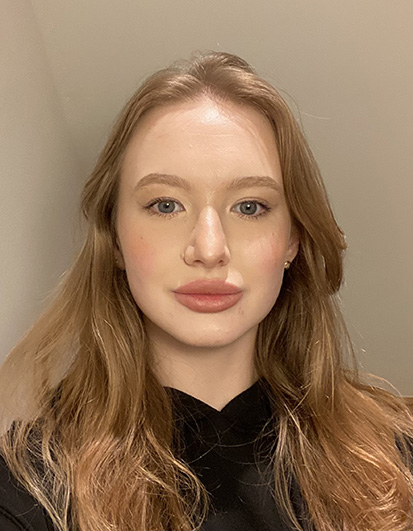 |
Sofiia Emashova |
| Sofiia was born in Russia in 1998 and obtained her Specialist Degree in Fundamental and Applied Chemistry at Lomonosov Moscow State University in 2022. During her specialist research, she worked in Prof. Elena S. Shubina's group at the Nesmeyanov Institute of Organoelement Compounds of the Russian Academy of Sciences under the supervision of Dr. Alexey Titiov studying light-emissive macrocyclic pyrazolate complexes of coinage metals. In September 2022, Sofiia joined the Wezenberg group to work on light-switchable ion-pair hosts for cesium extraction. |
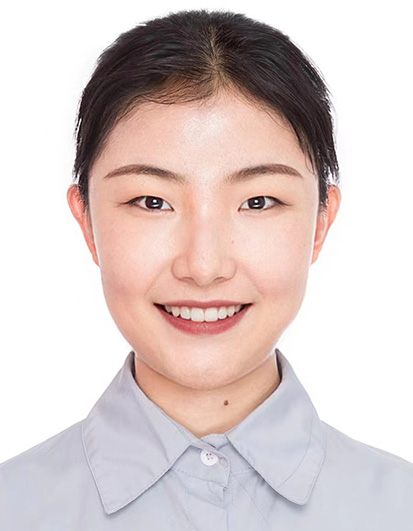 |
Lin Xu |
| Lin grew up in Jinan (China) and obtained her BSc degree in Pharmaceutical Engineering at Qufu Normal University in 2019. Afterwards, she completed her MSc degree in Physical Chemistry at Shandong University in 2022, where she studied the self-assembly behavior of bolaamphiphles and their applications in flexible electronics in the group of Prof. Yaqing Liu. In November 2022 she joined the Wezenberg group as a PhD student to study phototunable conductivity in polymer hydrogels. |
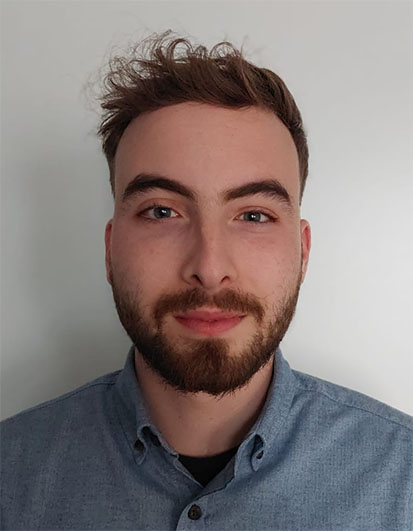 |
Dimitris Piperoudis |
| Dimitris was born and raised in Athens and studied Chemistry at the University of Ioannina, where he graduated in 2019. In the same year he started his Master's studies at the Radboud University, where he worked in the group of Prof. Roeland Nolte on the epoxidation of alkenes by porphyrin cages. After graduating in 2021, he started a position at the same University as Junior Researcher under the supervision of Dr. Paul White, focusing on NMR binding assays with photoswitches that act as enzyme inhibitors in addition to studies on the mechanism of the glucosylation reaction. In January 2023, he joined the Wezenberg group as a PhD candidate. |
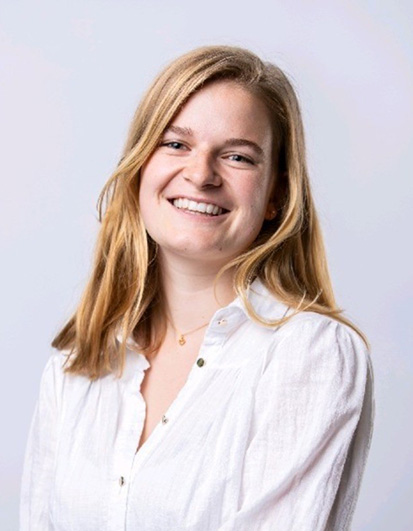 |
Josien de Graaf |
| Josien was born in Dieren, the Netherlands, in 1999. She obtained both her Bachelor's and Master's degree in Chemistry at the Radboud University in Nijmegen. For her first Master's internship she worked on photoswitchable enzyme inhibitors to use in flow for reservoir computing in the Huck group. Her second internship was on photoswitchable metal-organic cages in the Nitschke group at Cambridge University. In 2025 she joined the Wezenberg group as a PhD student to develop photoswitchable transmembrane symporters to be used in cells. |
MSc Students
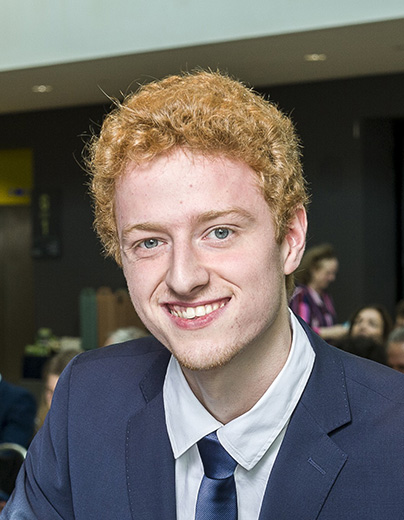 |
Luka Reinders |
| Born in Breukelen in 2002, Luka studied Molecular Science and Technology in Delft and Leiden, and acquired his BSc degree in 2023. He did his bachelor's internship at the LIC in the Bio-organic Synthesis group under Dr. Mark Overhand. His project focused on the design and synthesis of an HMDOTA-based lanthanoid probe for protein dynamics studies. Afterward, he continued his education at Leiden University with the MSc Chemistry program, specialising in science communication. In 2025, he joined the group of Sander Wezenberg, where he works on developing photoswitchable stiff-stilbene based transmembrane transporters. |
Former Postdocs (and destination)
|
Dr. David Lozano October 2022 - September 2023 Product Development Scientist, Synthomer |
Dr. Suchismita Saha September 2020 - February 2022 Postdoc w/ Prof. M. von Delius, University of Ulm |
|
Dr. Stefan Mommer January 2021 - June 2022 Ambizione Fellow, ETH Zurich |
Former PhD Students (and destination)
|
Indigo Bekaert March 2020 - October 2024 Postdoc w/ Prof. J.N.H. Reek, University of Amsterdam |
Jorn de Jong November 2019 - August 2024 |
|
Jasper Bos December 2019 - April 2024 Product Developer, Cimcool DuBois |
Dr. David Villarón April 2019 - March 2023 Postdoc w/ Dr. D.L.J. Broere, Utrecht University |
Internship Students and Visitors
|
Mark Tadema September - December 2024 BSc Student Internship, Leiden University |
Robin van Damme April 2022 - February 2023 MSc Student Internship, Leiden University |
|
Martine van Rijn February - September 2024 MSc Student Internship, Leiden University |
Leonardo Andreoni April - July 2022 Visiting PhD Student, University of Bologna |
|
Fay van Belkum August - December 2023 MSc Student Internship, Leiden University |
Michelle van Dongen January - February 2022 HRSMC Short Rotation, University of Amsterdam |
|
Bente Reus June - July 2023 HRSMC Short Rotation, University of Amsterdam |
Marouscha Puister April - July 2021 BSc Student Internship, Leiden University |
|
Felix van Nifterik April - July 2023 BSc Student Internship, Leiden University |
Guido Brugman September 2020 - July 2021 MSc Student Internship, Leiden University |
|
Youri van Baarle April - July 2023 BSc Student Internship, Leiden University |
Esteban Matador March - May 2020 Visiting PhD Student, University of Seville |
|
Thierry van der Wielen February - June 2023 MSc Student Internship, Leiden University |
Fabien Kohl September - November 2019 Visiting MSc Student, LMU Munich |
|
Jorge Lopez June - September 2022 Visiting PhD Student, University of Murcia |
Jasper Bos May - July 2019 Visiting MSc Student, University of Groningen |